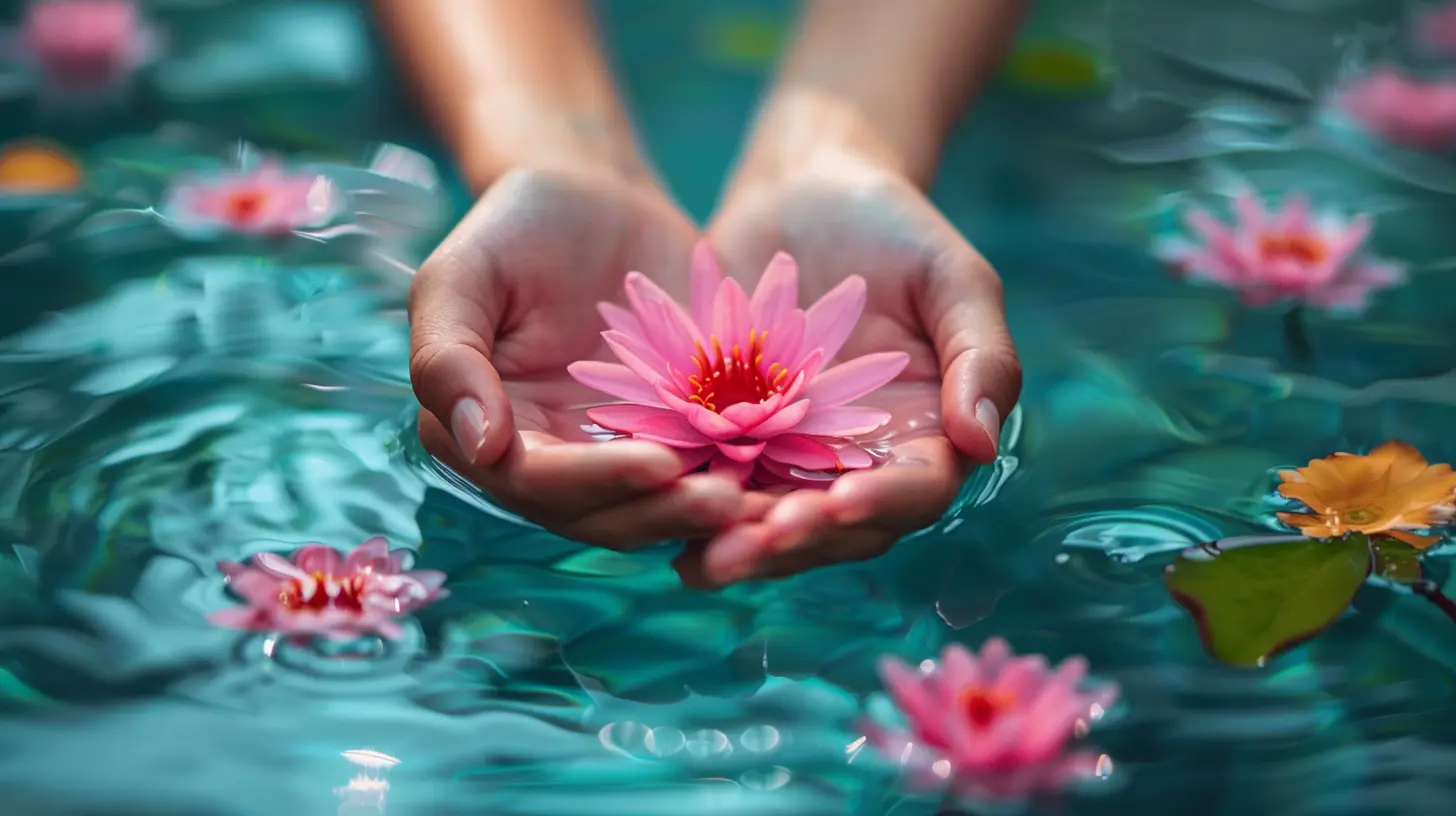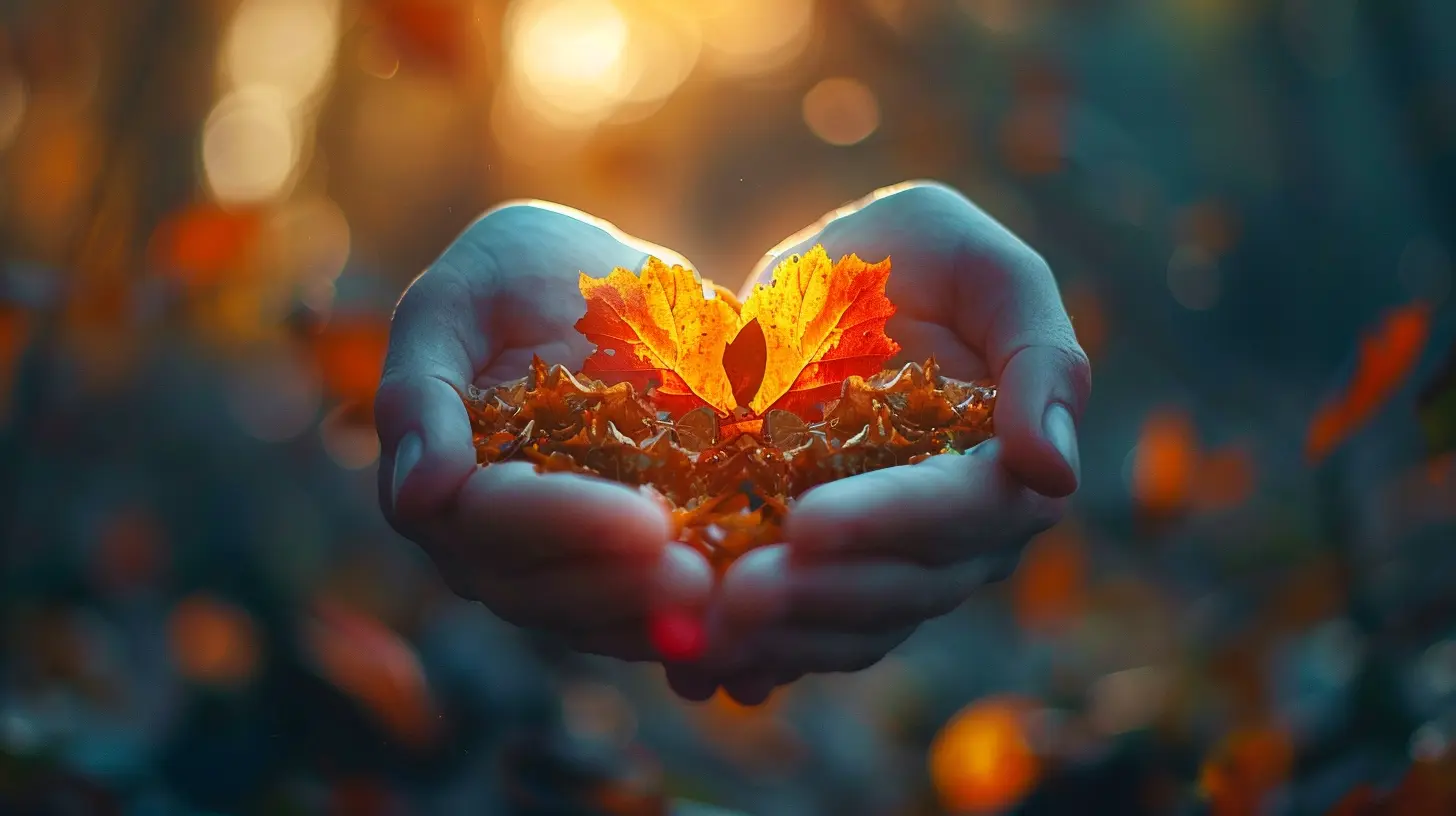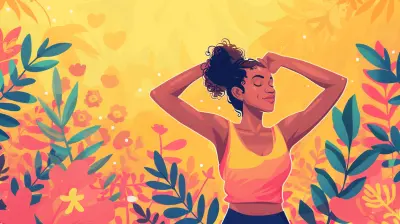4 February 2025
Gratitude—what's the big deal, right? It’s just a polite “thank you” or the occasional thought about something good that happened in your life. But what if I told you that gratitude is like a secret weapon for emotional wellbeing? Yep, it’s more than just good manners—gratitude has the power to reshape how you see the world and, ultimately, how you feel.
In this article, we’re going to dive deep into the magic of gratitude and how it can transform your emotional health. So, grab a cup of coffee (or tea, if that’s more your style), sit back, and let’s chat about how this simple act of appreciation can work wonders in your life. 
What Is Gratitude, Anyway?
Let’s start with the basics: gratitude is the act of recognizing and appreciating the good things in your life. Sounds simple enough, but it goes deeper than just saying “thanks” when someone holds the door open for you. Gratitude is about feeling that appreciation in your bones.It’s like stopping to smell the roses—or realizing that you’re lucky to even have roses in the first place. It’s a mindset shift that focuses on abundance rather than scarcity, emphasizing what you have instead of what you lack.
But here’s the kicker: gratitude isn’t just a warm, fuzzy feeling. It actually rewires your brain. 
How Gratitude Impacts Your Brain
Did you know that practicing gratitude can change the physical structure of your brain? Yeah, science backs this up! Here’s how it works:When you feel grateful, your brain releases a flood of feel-good chemicals like dopamine and serotonin. Think of these as the happy hormones that brighten your mood. Over time, as you practice gratitude regularly, your brain starts to rewire itself, making it easier for you to focus on positive experiences.
Picture your brain like a garden. The more you water the flowers (positive thoughts), the stronger and more vibrant they grow. Meanwhile, the weeds (negative thoughts) start to wither away. Gratitude acts like the gardener, helping you plant seeds of positivity that bloom into a healthier, happier mind. 
The Link Between Gratitude and Emotional Wellbeing
Okay, so gratitude feels good. But how does it specifically impact emotional wellbeing? Let’s break it down.1. Reduces Stress and Anxiety
Ever feel like life’s just too much sometimes? We’ve all been there. The good news? Gratitude can help dial down that overwhelming sense of stress and anxiety.When you shift your focus to what you’re thankful for, you’re directing your attention away from the chaos and onto what’s good in your life. It’s like hitting the pause button on your worries and reminding yourself, “Hey, I’ve got some pretty great things going on here.”
Gratitude acts like an anchor in a stormy sea—it helps you stay grounded when things feel rough.
2. Boosts Happiness
Happiness isn’t about having a perfect life; it’s about appreciating the small moments that make life beautiful. Gratitude helps you find joy in the little things, like a sunny day, your favorite song playing on the radio, or a kind word from a friend.Studies have shown that people who practice gratitude regularly feel happier and more satisfied with their lives. Why? Because they’re training their brains to look for the silver linings, even in challenging situations.
3. Improves Relationships
Let’s get real—relationships can be tricky. But gratitude can act as the glue that strengthens your connections with others.When you express gratitude toward someone, you’re showing them that you value and appreciate them. This simple act can deepen your relationships, whether it’s with a partner, friend, or coworker. People love to feel appreciated, and gratitude has a way of bringing people closer together.
4. Enhances Resilience
Life throws curveballs at all of us. The difference between sinking and swimming often comes down to resilience—how well you can bounce back from challenges.Gratitude fosters resilience by helping you focus on what’s going right instead of what’s going wrong. It shifts your mindset from victimhood to empowerment, reminding you that even in tough times, there’s something to be thankful for. 
How to Cultivate Gratitude in Your Daily Life
Alright, so we’ve established that gratitude is kind of a big deal. But how do you actually incorporate it into your daily life? Don’t worry—it’s easier than you think.1. Start a Gratitude Journal
This one’s a classic for a reason. Every day, take a few minutes to jot down three things you’re grateful for. They don’t have to be groundbreaking—something as simple as “I had a great cup of coffee this morning” works just fine.Over time, you’ll start to notice patterns of positivity in your life, and that gratitude muscle will get stronger.
2. Practice Mindfulness
Gratitude and mindfulness go hand in hand. Take a moment each day to pause, breathe, and reflect on what you’re thankful for. Maybe it’s the warmth of the sun on your skin or the sound of birds chirping outside.Mindfulness helps you stay present, and gratitude reminds you to appreciate the here and now.
3. Say “Thank You” More Often
Sometimes, the simplest gestures have the biggest impact. Make it a habit to say “thank you” to the people around you—whether it’s your barista, your coworker, or a loved one.Expressing gratitude out loud not only makes others feel good but also reinforces your own feelings of appreciation.
4. Reflect on Challenges
This one might sound counterintuitive, but hear me out. Take a moment to reflect on the tough times in your life and think about what you learned from them. Gratitude doesn’t mean ignoring the bad stuff; it means finding the silver linings tucked away in the hardships.Did a difficult situation teach you a valuable lesson? Did it make you stronger? Focusing on growth can help you cultivate gratitude even in challenging moments.
The Science of Gratitude: What Research Says
If you’re still skeptical, let’s talk numbers. Studies have shown that practicing gratitude can lead to:- A 23% reduction in cortisol, the stress hormone.
- Better sleep quality—because who doesn’t love a good night’s rest?
- A 25% increase in feelings of happiness and life satisfaction.
And it’s not just mental health that benefits—physical health can improve too. People who practice gratitude report fewer aches, better immune function, and even lower blood pressure.
The Ripple Effect of Gratitude
Here’s the cool part: gratitude doesn’t just benefit you—it creates a ripple effect that impacts those around you.When you’re grateful, you’re more likely to spread positivity and kindness. This, in turn, inspires others to do the same. Imagine a world where gratitude becomes contagious—wouldn’t that be amazing?
Final Thoughts: Gratitude as a Daily Superpower
Here’s the bottom line: gratitude isn’t just a feel-good practice; it’s a life-changing one. It’s like a pair of glasses that lets you see the world in a brighter, more positive light.The best part? Gratitude is free, and you can start practicing it right now. So, what are you waiting for? Take a moment to reflect on what you’re grateful for today, and watch how it transforms your emotional wellbeing over time.









Dusk McIntosh
“Gratitude is like a mental gym membership—great for your emotional fitness but way cheaper! Just remember, saying thank you to your coffee for getting you through the morning counts too. Who knew being thankful could burn so many calories in happiness? Keep flexing those grateful muscles!”
March 31, 2025 at 4:21 PM